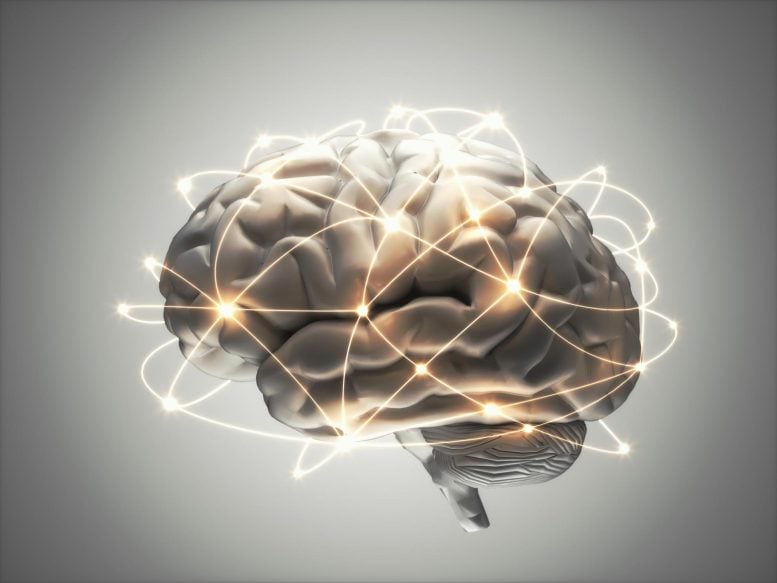
The discovery could pave the way for treating substance use disorders.
In a rat model of impulsive behavior, researchers discovered that inhibiting certain acetylcholine receptors in the lateral habenula (LHb), a region of the brain responsible for balancing reward and aversion, made it more difficult to resist the urge to seek cocaine. These discoveries reveal a new function for these receptors that could serve as a future target for the creation of cocaine use disorder treatments. For the time being, there are no authorized drugs to treat cocaine use disorder.
The research, which was funded by the National Institute on Drug Abuse (NIDA), a division of the National Institutes of Health, was published in the Journal of Neuroscience. Overdoses using stimulants like cocaine and methamphetamine claimed the lives of approximately 41,000 individuals in 2020. To increase the options available to those seeking treatment and support long-term recovery, it is essential to develop safe and effective drugs that help treat addictions to cocaine and other stimulants.
“This discovery gives researchers a new, specific target toward solving a problem that has long been elusive – developing treatments for cocaine addiction,” said NIDA Director, Nora Volkow, M.D. “As we have seen with medications to treat opioid use disorder, adding this tool to clinical care could save lives from overdose and drastically improve health and quality of life.”
Because the LHb serves as an interface between brain areas mediating emotion and reward and those involved with reasoning and other higher-order thought processes, factors known to be associated with substance use disorders and major depressive disorders, addiction science researchers are particularly interested in the LHb as a target for the development of future treatments. These regions, for instance, are engaged in regulating actions like refraining from a reward when it is assessed that it is not “beneficial.”
Building on previous work that established the importance of the LHb and acetylcholine receptor signaling in impulsive cocaine-seeking, this study further defines the cellular mechanisms through which LHb neurons regulate this behavior. Researchers used a behavioral paradigm called the Go/NoGo model in rats.
In this model, rats were trained to self-administer cocaine, where a lever press led to an injection of the drug. This was followed by specific training in the Go/NoGo task where cocaine was available when the lights were on (Go), but not when the lights were off (NoGo). Animals quickly learned to stop responding when cocaine was not available.
The researchers then chemically manipulated the LHb, to assess the impact on the rats’ ability to withhold their response to cocaine. They found that response inhibition for cocaine was impaired by blocking a specific type of muscarinic acetylcholine receptor, known as M2Rs, with an experimental drug called AFDX-116, and not with a drug called pirenzepine that blocks other muscarinic acetylcholine receptors known as M1Rs.
Thus, when M2Rs were blocked in the LHb the rodents were no longer able to stop responding to cocaine even when it was not available (the “NoGo” condition), despite the training. This indicates that increasing LHb M2R function may represent a potential target for treating impulsive drug seeking and substance use disorders.
The researchers also studied the cellular mechanisms by which M2Rs alter LHb neuronal activity by measuring changes in the electrical activity of these neurons in response to acetylcholine-like drugs. Although these drugs reduced both excitatory and inhibitory inputs onto LHb neurons, there was a net increase in inhibition, which may account for acetylcholine’s ability to limit impulsive cocaine seeking.
“The LHb acts like an interface between rational thought in the forebrain and the modulation of neurotransmitters like dopamine and serotonin that originate in the midbrain, which are important in regulating decision processes and emotions,” said Carl Lupica, Ph.D., chief of the Electrophysiology Research Section of the Computational and Systems Neuroscience Branch of NIDA. “While the immediate results of this study are related to cocaine seeking, there are also greater implications for impulsivity as it relates to other drugs as well as to psychiatric conditions like obsessive-compulsive disorder. Our future studies will explore the relationship between LHb activity and impulsive behavior related to other drugs such as cannabis, and opioids such as heroin.”
Although targeting M2Rs is promising, there are challenges because the muscarinic acetylcholine system is involved in everything from regulating heart rate, affecting motion sickness, and controlling vasodilation, for example. These receptors are also located throughout the body, including many other regions of the brain. Further research is needed to develop ways to target the M2Rs in the LHb without causing a cascade of side effects, and as a first step, these researchers are now trying to identify where in the brain the acetylcholine released in the LHb originates.
Reference: “Muscarinic Acetylcholine M2 Receptors Regulate Lateral Habenula Neuron Activity and Control Cocaine Seeking Behavior” by Clara I.C. Wolfe, Eun-Kyung Hwang, Elfrieda C. Ijomor, Agustin Zapata, Alexander F. Hoffman and Carl R. Lupica, 13 July 2022, Journal of Neuroscience.
DOI: 10.1523/JNEUROSCI.0645-22.2022
The study was funded by the NIH/National Institute on Drug Abuse.